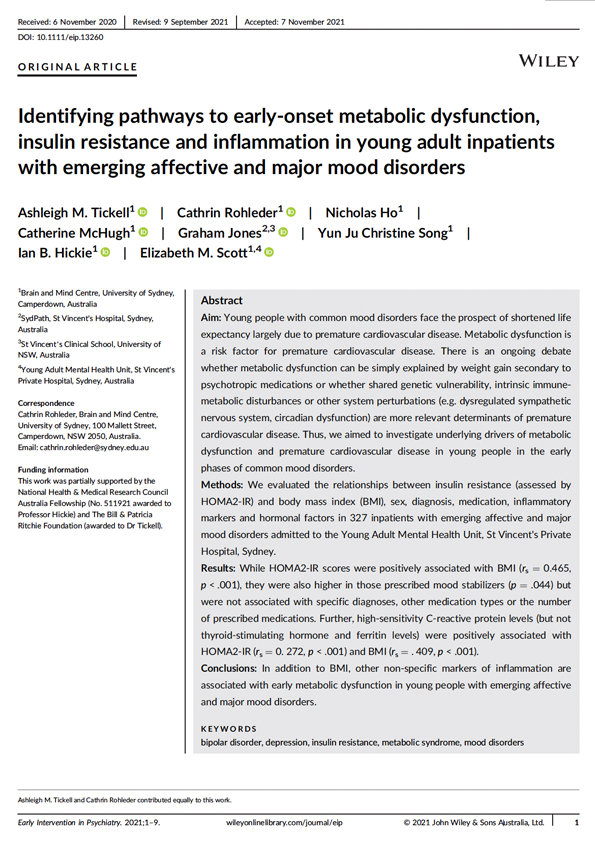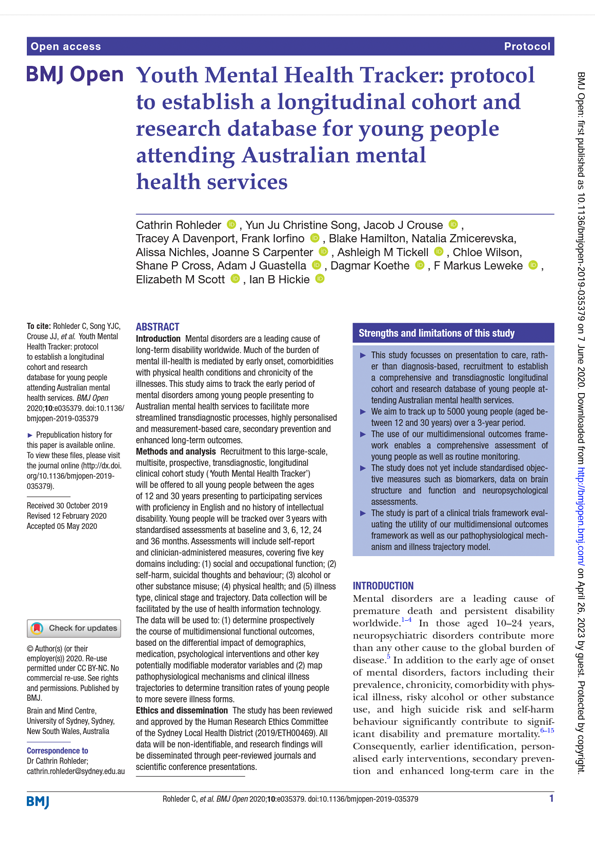ABOUT
Co-managing with young people and families immunotherapy for atypical major mood or psychotic disorders
Over the last decade there has been an increasing recognition that a proportion of young people with atypical major mood or psychotic disorders may actually be experiencing very unusual syndromes that are underpinned by an overactive immune system attacking their brain. This has led to the exploration of whether various rather non-specific immunosuppressive therapies or more targeted new immune therapies may be a better treatment approach than conventional antidepressant or antipsychotic medications.
However, these new approaches are not without their risks to the short and longer-term health of the young person involved. This is particularly challenging as usually there are no definitive laboratory tests or brain scans to be certain that the cause of the syndrome is a dysregulated immune system.
The journey to obtain a reasonably certain diagnosis is often a complex one, relying on very close co-operation and trust between the young person affected, their family members and the various psychiatrists, immunologists and neurologists who often lead the treatment team. Our team in Sydney has developed a clinical approach to diagnosis and ongoing treatment that relies on:
i) very close clinical partnerships between the treating team and the young person and their family;
ii) a willingness to discuss openly what is known and not known; and,
iii) an open and transparent approach to describing potential risks and benefits of going down this unconventional treatment path.
Over 40 young people have now been down this collaborative path, with some remarkably positive outcomes in situations that were really life-threatening. However, the ongoing personal and clinical issues are challenging, and a positive approach to working collaboratively is essential for this field to continue to grow and provide real benefits to a much wider group of young people.

